-
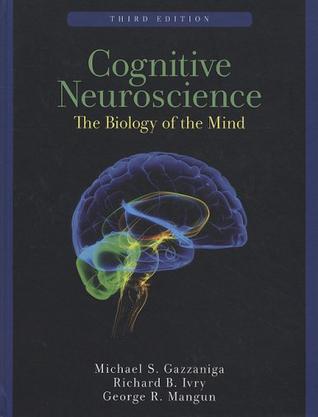
Cognitive Neuroscience
Taking a highly interdisciplinary approach, the authors balance cognitive theory, with neuroscientific and neuropsychological evidence to reveal what we currently know about how the human mind works and to encourage students to think like cognitive neuroscientists. The text has been reorganized to move more seamlessly from micro to macro level topics, and its underlying pedagogy strengthened in order to make it an even more effective teaching tool. Maintaining its commitment to highlight the most cutting-edge trends in the field, the third edition includes the first ever standalone chapter of its kind on social neuroscience. -
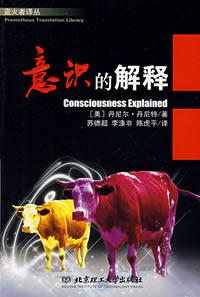
意识的解释
《意识的解释》是丹尼特最重要、影响最大著作之一,也是心智哲学甚至当代哲学中最重要的著作之一。《意识的解释》全方位地探索意识现象。在这本里程碑式的著作中,丹尼尔•丹尼特反驳传统的、常识的意识理论,提出一个全新的模型,广泛吸收来自神经科学、心理学、人工智能等领域的信息。 《意识的解释》全方位地探索意识现象。在这本里程碑式的著作中,丹尼尔•丹尼特反驳传统的、常识的意识理论,提出一个全新的模型,广泛吸收来自神经科学、心理学、人工智能等领域的信息。我们当前关于有意识生命物(人类、动物,甚至机器人)的各种理论,都会因为此书揭示的全新视角而发生根本转变。 -
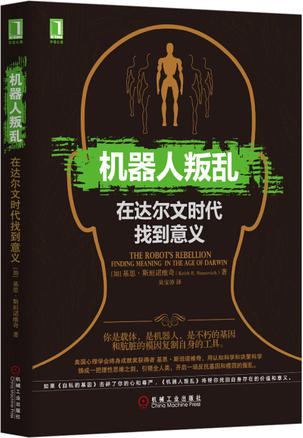
机器人叛乱
"我,机器人?" 是的,你是一个机器人!你有两个毫无人性的主人,一个是基因,一个是模因。 它们寄生在你身上,你懵懂无知地为你的主人卖命,哪怕为此丢了脑袋也在所不惜。 体重直线上升,存在高血压、糖尿病、心脏病风险,但你还是无法抗拒甜食的诱惑。这是基因主人布下的陷阱,它让你拼命储存能量以繁衍后代,保证它自己可以延续下去。 即使逃出了基因的掌控,你还在模因的魔掌之中:相信自己死后能进天堂,让恐怖分子铤而走险,蹈死不顾;相信意念能治绝症,让很多人把钱源源不断地掏给骗子,即使没有任何疗效也执迷不悟;还有吹嘘各种保健观念、虚荣身份的广告……这些模因都在以你为载体复制传播自己! 你如同被操纵的“机器人”,一开始就定错了目标,偏离了方向——一心为基因和模因服务,却忘了自身的利益! 你的生命还有意义吗?你怎么才能逃离被利用的惨境? 好消息是,你拥有地球上最复杂灵活的智能,有许多可用的“武器”,而在你的“武器库”里,没有什么能比理性思维更强大了。 理性思维代表你的个人利益,在基因目标和个人目标冲突时,确保大脑优先处理个人目标;理性思维帮助你评估你的欲望、信念和目标,确保方向和手段的正确性,避免被模因误导,从而让你更易实现个人目标。 在本书中,斯坦诺维奇将帮助你:重新认识理性思维在人类生存境况中的关键作用,深入理解理性思维运作的机制,提升理性思维能力,从而在生活、事业等各方面做出更为明智的计划和决策,找到属于自己的人生意义,拥有自己真正想要的人生。 在这场以理性为武器的叛乱中,你将真正成为你自己,成为你自己的主人。 -
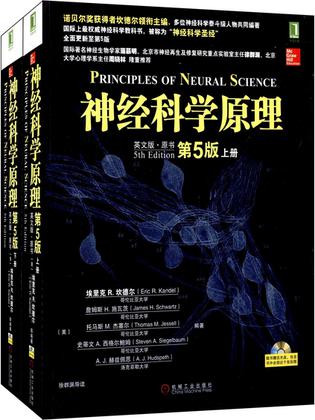
神经科学原理
诺贝尔奖获得者坎德尔领衔主编,多位神经科学泰斗级人物共同编著 国际上最权威神经科学教科书,被称为“神经科学圣经” 全面更新至第5版 国际著名神经生物学家蒲慕明、 北京市神经再生及修复研究重点实验室主任徐群渊 北京大学心理学系主任周晓林 隆重推荐 随书赠送光盘,包含书中全部近千张彩图 -
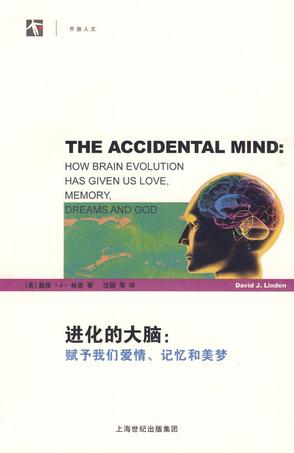
进化的大脑
本书是美国约翰·霍普金斯大学神经科学系教授林登博士向公众普及脑科学知识的富于趣味性的读物。作者认为人脑是在长期进化过程中自然形成的组织系统而不是刻意设计的产物,因此将脑比作可以叠加新成分的甜筒冰淇淋。以这一思路为主线,作者介绍了大脑的构成、基本发育、感觉和感情等,进而描述脑如何支配学习、记忆和个性,如何决定性行为和性倾向,以及脑在睡眠和梦中的活动机制,还尝试性地阐述了脑功能与宗教的关系。书中穿插了不少趣事并有近50幅插图。 -
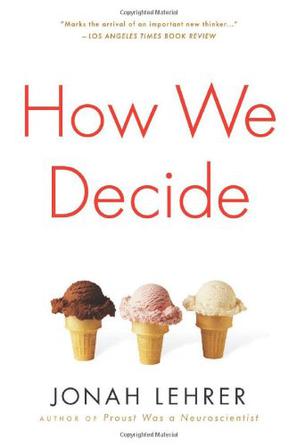
How We Decide
Product Description The first book to use the unexpected discoveries of neuroscience to help us make the best decisions. Since Plato, philosophers have described the decision-making process as either rational or emotional: we carefully deliberate, or we blink and go with our gut. But as scientists break open the mind's black box with the latest tools of neuroscience, they re discovering that this is not how the mind works. Our best decisions are a finely tuned blend of both feeling and reason and the precise mix depends on the situation. When buying a house, for example, it s best to let our unconscious mull over the many variables. But when we re picking a stock, intuition often leads us astray. The trick is to determine when to use the different parts of the brain, and to do this, we need to think harder (and smarter) about how we think. Jonah Lehrer arms us with the tools we need, drawing on cutting-edge research as well as the real-world experiences of a wide range of deciders from airplane pilots and hedge fund investors to serial killers and poker players. Lehrer shows how people are taking advantage of the new science to make better television shows, win more football games, and improve military intelligence. His goal is to answer two questions that are of interest to just about anyone, from CEOs to firefighters: How does the human mind make decisions? And how can we make those decisions better?